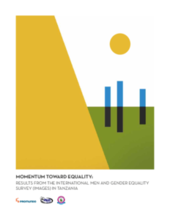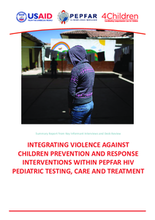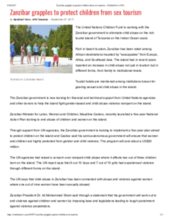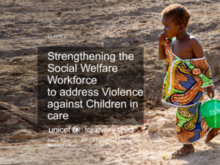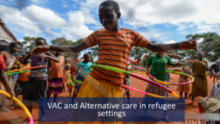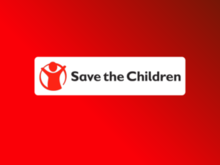Displaying 41 - 50 of 104
The International Men and Gender Equality Survey (IMAGES) is a comprehensive, multi-country study on men’s and women’s realities, practices, and attitudes with regard to gender norms, gender-equality policies, household dynamics, caregiving and fatherhood, domestic violence, sexual diversity, health, and economic stress, among other topics.
This report presents the preliminary findings from an ongoing project undertaken by 4Children that seeks to identify key opportunities to incorporate violence prevention and response interventions within priority PEPFAR Program Areas at clinical and community levels.
In this piece for the Huffington Post, founder of World Future Council Jakob von Uexkull, writes about Zanzibar's Children's Act of 2011 and how it has been implemented and enforced to improve child protection practices in Zanzibar.
This video from Catholic Relief Services provides an overview of the Thrive II project, a program designed to enhance parent-child bonds and strengthen early child development.
High prevalence of sex tourism in Zanzibar has spurred a five year National Action Plan to end violence against children and women on the island.
The theme of the next PSS forum, which will take place in Arusha, Tanzania from 4-6 September, 2017, is “Equity, Equality for all Girls, Boys and Youth”
This UNICEF presentation describes the need for social service workforce strengthening in East and Southern Africa and presents recommendations based on a case example from Rwanda.
This UNHCR presentation provides an overview of alternative care for children in East African refugee contexts.
This presentation describes the findings from a 2015 Save the Children study on kinship care in Ethiopia, Kenya and Zanzibar.
Lending a helping hand in countries with poor health infrastructure is usually well intentioned—but it can cause serious harm.

